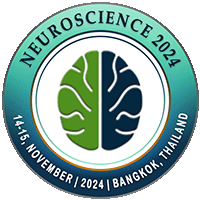
Hironobu Fujiwara
Kyoto, Kyoto University, JapanTitle : Behavioural addictions and health benefits of daily life habits: Focusing on the reward system
Abstract
In this presentation, the underlying mechanisms of health benefits and the risk of habitual behaviours such as internet use, media multitasking, and excessive physical exercise were explored, introducing neuroimaging studies that reveal the associations between daily life habits and the reward/motivation system. This is especially critical in the current era, where technology like the internet has become mainstream despite the enormous addictive risk, as represented by the concepts of cross-addiction. The understanding of underlying mechanisms of behavioural addiction and optimal level of habitual behaviours for mental health benefits are deepened by shedding light on some findings of neuroimaging studies to have hints to facilitate better management and prevention strategies of addictive problems. With the evolution of the world, and the inevitable use of some technologies that carry the risk of addiction, more effective strategies for preventing and managing addiction are in more demand than before, and the insights of this study are also valuable foundations for future research.
Biography
Hironobu, PhD, M.D. is a psychiatrist with over twenty years of clinical and research experience. He has extensively published in neuroscience journals, particularly focusing on neuroimaging studies of neuropsychiatric issues including addictive problems. In recent years (2017~), he has been investigating the neural correlates of health benefits/ negative consequences of daily life habits such as physical exercise, mainly focusing on neurotransmission in brain reward system. He has been serving as an editorial board member of several reputed journals. At the same time, as a medical educator, provides regular supervision to graduate school students and medical residents on health prevention and treatments. He is also a visiting researcher at RIKEN (Center for Advanced Intelligence Project, Artificial Intelligence Ethics and Society Team), tackling ethical issues in developing an optimized strategies of AI usage, as well as those associated with human mentality and professionalism with interdisciplinary approaches (colleagues: legal scholars, psychologists, and educational philosophers).

